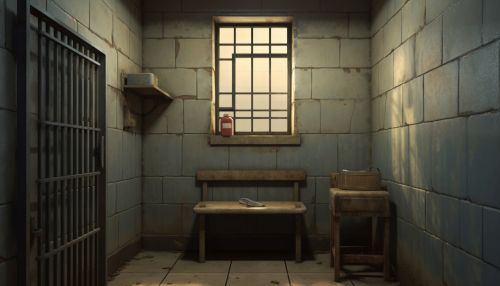Political prisoner
Definition and Overview
A political prisoner is a term used to refer to an individual who is imprisoned because their ideas, beliefs, or activities are perceived as a threat by a political system or regime. The term is used to denote someone who is held in prison or otherwise detained, perhaps under house arrest, for their involvement in political activity. Political activities can range from peaceful protest and dissent to involvement in armed resistance movements.


Historical Context
The concept of a political prisoner has been present throughout history, dating back to ancient times. However, the term itself gained prominence during the 19th and 20th centuries, particularly in relation to the struggles for national liberation, the fight against colonialism, and the emergence of totalitarian regimes.
Recognition and Treatment
The recognition and treatment of political prisoners vary significantly across different jurisdictions and according to the political context. In some cases, governments deny the existence of political prisoners, while in others, they are recognized and treated differently from common criminals.
International Law and Human Rights
International law, particularly human rights law, plays a significant role in the protection of political prisoners. The Universal Declaration of Human Rights and the International Covenant on Civil and Political Rights are two key instruments that provide a legal framework for the protection of political prisoners.
Controversies and Debates
The term "political prisoner" is often contentious, with debates revolving around its definition, its use, and its implications. Some argue that the term is too broad or vague, while others contend that it is essential for highlighting political repression and human rights abuses.
Notable Political Prisoners
Throughout history, there have been many notable political prisoners who have gained international attention. These individuals often become symbols of resistance against oppressive regimes and are sometimes seen as heroes or martyrs by their supporters.
